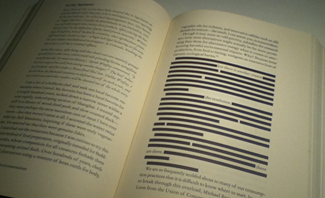Is Avoiding Discomfort Worth Losing Literature?
The world is filled with millions of life lessons to be learned and neverending truths waiting to be discovered. Many of these lessons and truths are necessary to be a functioning member of society. That is undeniable. It is also undeniable that it would take an astronomical amount of time to learn those lessons and truths by oneself. How do children and students learn them before entering the “real world”? Simple: Literature. Books and literary works have always been used to spread information, tell stories, teach life lessons.

Classic books like To Kill a Mockingbird, The Adventures of Huckleberry Finn, and Catcher in the Rye have been long contested over whether they should be taught because of the “sensitive” and uncomfortable topics they cover. It is vital that students read diverse books in school because they allow them to further understand perspectives outside their own and because simply put: the world is inherently diverse. However, institutions and individuals have, historically, tried to censor books containing (what they’ve deemed) sensitive or offensive content. Censoring literature has most commonly been done to maintain control: of the past and people. On the educational front, some community members and faculty believe that children should only learn knowledge that agrees with their views and that students need to be shielded from discomfort because books like Huckleberry Finn contain offensive language that will distract students from overall literary themes, not wanting to read something that makes you so uncomfortable that you can’t focus on learning from it. Reading an unedited, offensive version of Huckleberry Finn would definitely be distracting from the lessons of the book. But the problem arises when you take away all discomfort from education and over censor to the point where nothing is being gained from the texts you are reading. Censoring literature causes students to be ill-prepared to understand the world around them. Students need to read texts that contain discomfort and learn from the life lessons they teach.
While community leaders and parents may believe they are doing students a favor by censoring uncomfortable texts, they are actually doing them a disservice. A former teacher from South Carolina stated that it is literature’s very job to teach us how to be human. To be human means to express all emotions, especially when something makes one uncomfortable. Discomfort leads to growth, and growth is learning in the most human way possible. The former educator also stated that books allow us to step into a world larger than ourselves. Current Pennridge student, Claire Mundell, agreed with these sentiments. In her interview, she stated that no book she has read has made her so uncomfortable that she couldn’t understand it. Mundell also stated, “Learning about that which you are unfamiliar with or uncomfortable with can help you understand different people’s circumstances and feelings better. I think it helps with empathy. It gives students a wider view going into college and the workforce, and I honestly believe it allows them to connect with peers better because they have a more open mind after truly learning about sensitive topics.”
In order to learn, one needs to gain external knowledge. Limiting the books students have available to them at school (an essential learning environment) means limiting their external knowledge. Books are windows for students to learn millions of life lessons awaiting them. So why do people feel the need to take that away from them?
Sources:
https://icof.infobase.com/articles/QXJ0aWNsZVRleHQ6MTYyMTY=?q=banned%20books
Shreya Soni is a current senior at Pennridge High School. She enjoys singing, dancing, KPOP, roller coasters, literature, and watching sunrises. After...



